Want to clean and balance your pool but lack the chemicals and supplies?
Check out these common household products for cleaning a pool
When pool chemicals and cleaning supplies start running low, the first response of most pool owners is to go and buy more. But what happens if those chemicals aren’t available, or if they simply don’t fit the budget at the time.
And moreover, have you ever wondered if you even need those chemicals? If you have, this next fact may come as a pleasant surprise.
A lot of the common household products you have scattered across the house work perfectly for cleaning your pool. And some of those products even double as homemade pool chemicals.
Now we’re not saying that ALL pool chemicals can be so easily replaced, but a few can. So whether you’re trying to do some cleaning, or discover a quick hack for balancing your water, you’ve come to the right place.
In this post, we’re sharing 11 of the best household products for cleaning a pool or hot tub
Before you start
Although all following solutions are tested and work great, it’s still important to be safe and professional. Here are a few tips on that:
- Test your water throughout the process to keep track of chemical levels, and easily achieve balance
- If cleaning a drained hot tub, thoroughly rinse chemicals off of the surface before refilling
- Read all labels on chemicals and follow proper use – some highly acidic chemicals can damage pools and liners if used incorrectly
11 Household Chemicals For Cleaning A Pool
Olive oil
Have a stubborn splotch of tree sap or sticky residue that just won’t come off? Open the pantry and grab some olive oil.
Olive oil chemically breaks down buildup, making it easier to remove with just a cloth and some soapy water.
And the best part is, olive oil is 100% natural and very gentle on most materials, so you won’t have to worry about damaging your covers or vinyl lining.
White vinegar
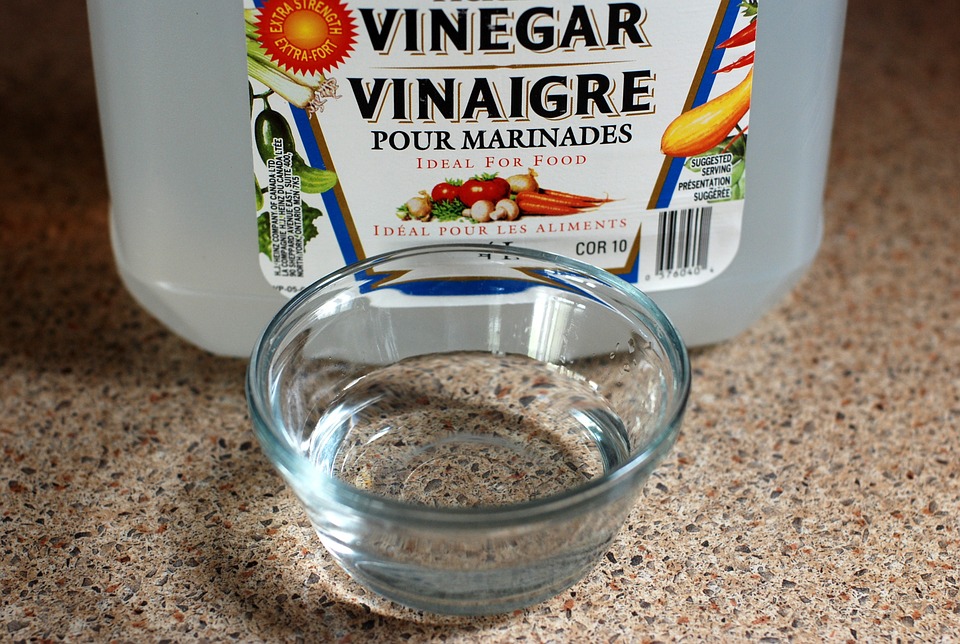


Chances are that up to this point, you’ve seen the white, chalk-like substance that forms across your pool’s water line at least once. Most of that is calcium buildup, which although fairly harmless, is a major eyesore.
Luckily, you vinegar gets rid of it easily.
Use a half water, half vinegar solution for quickly removing those pesky white streaks inside of your pool and hot tub. You can also use vinegar for restoring the shine to metal surfaces — just apply some to a sponge, and wipe away
[Want to avoid the problem for good? Check out: How To Remove Calcium Scaling & Lower Calcium Hardness]
Baking Soda
Need to power up your cleaning session? Baking soda might be your solution.
Sprinkle some baking soda on your brush or sponge to easily blast away buildup. You can also combine a pinch of baking soda with a cup of vinegar to create a natural oxidizing cleaning solution for removing stains
Homemade pool chemical tip: You can use baking soda to increase your water’s alkalinity (it’s practically the same thing as alkalinity increaser).
How much baking soda to add to a pool: 1.5 pounds soda per 10,000 gallons creates about a 10 ppm increase
Will baking soda clear up a cloudy pool? Yes, and it can help regulate pH too
[Dealing with murky white water? Check out: How To Fix Cloudy Water Fast]
Lime Juice
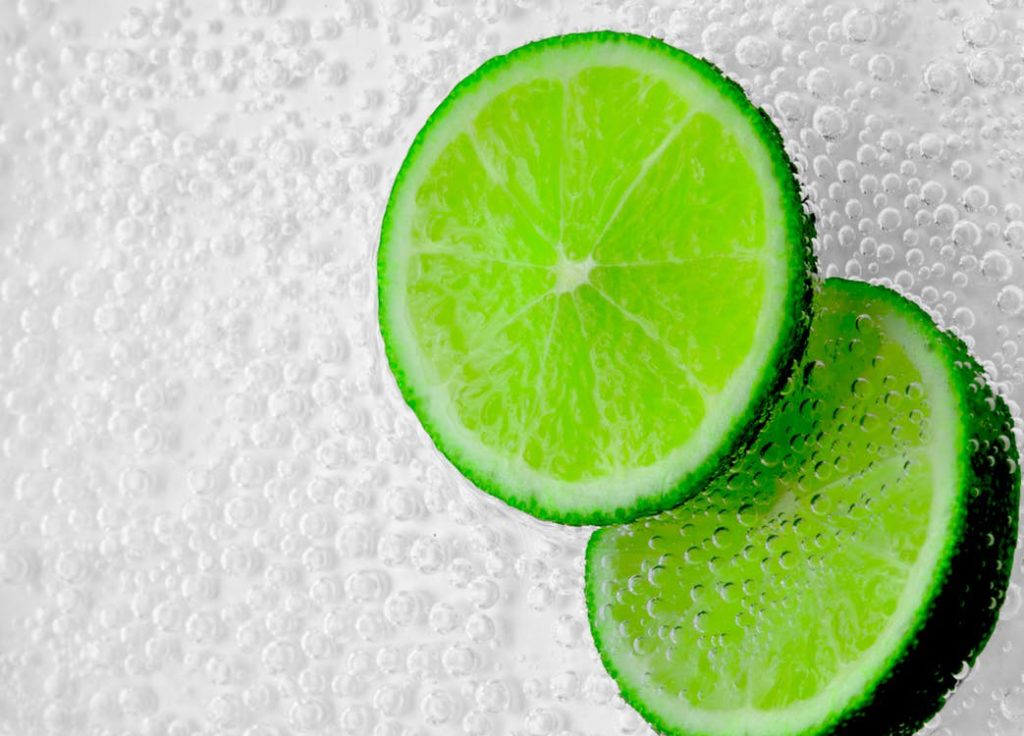


If there are a few metal surfaces you want to shine or rust that you’re trying to remove, lime is the answer.
Lime’s natural acidity makes it perfect for removing most common buildup that forms in pools and hot tubs.
To clean with it, combine about a cup of lime juice with enough salt to create a slush-like liquid. Use this natural cleaning solution to treat and scrub away rust on metal surfaces. You can also use the lime juice alone to remove calcium buildup.
Bonus: use a baking soda paste (soda + water) to pre-treat and loosen rust before using lime
Borax
If you have borax in your home, then it’s probably close to the detergents and bleach. That’s because borax is designed to be a detergent booster. But it actually has plenty of other uses.
In fact, borax works in a similar way to baking soda. For purposes of cleaning, you may even call it a substitute.
Sprinkle borax on a sponge for a quick scrubbing power boost, or use a 50/50 solution to scrub away sticky residue.
Homemade pool chemical tip: You can use borax to raise your pool’s pH — use a 1/2 cup per 10,000 gallons. The pH increase amount is dependent on your water’s starting alkalinity and pH level, but ranges from 0.04-0.14
Rubbing Alcohol
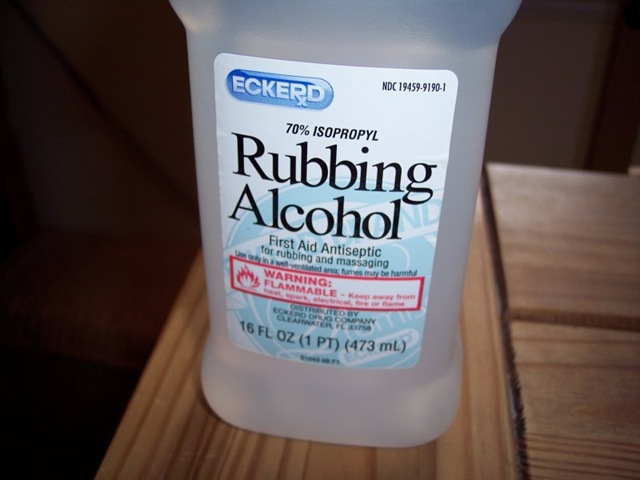


If you don’t have any lime or vinegar hanging around, rubbing alcohol is the next best thing.
For the most part, rubbing alcohol is used as a first-aid antiseptic (giving it powerful germ-killing properties), but it can also be used as a cleaner.
It’s especially good for shining stainless steel surfaces and helps with removing sticky residue.
When cleaning your pool or hot tub, use 50% or 70% diluted rubbing alcohol
Bleach
You probably use bleach for a bunch of different purposes at home already, from doing laundry to cleaning the tub. But did you know you can also use bleach to clean your pool?
It’s not as ideal as using vinegar since pure bleach is chemically harsher, but it’s a great alternative if used both correctly, and sparingly.
So take the same approach, and use a 50/50 bleach and water solution for simple stain removal. When you’re finished, be sure to rinse off surface thoroughly — bleach can wreak havoc on vinyl and other plastic based surfaces exposed to sunlight.
+Homemade pool chemical tip: Bleach can also be used as an alternative to chlorine. For reference, a 1/2 gallon of bleach raises the chlorine of a 10,000-gallon pool by approximately 5ppm.
Simple Green
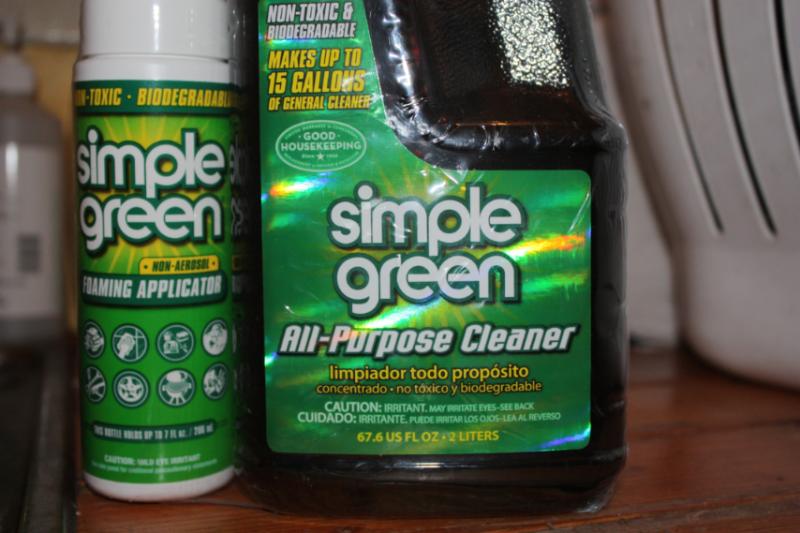


This non-toxic and environmentally friendly cleaner has gained popularity over the years and remains a favorite across several industries. So naturally, it’s likely that you have a bottle of it sitting under the kitchen sink.
You can use SimpleGreen for everything from stain and residue removal, to oil degreasing and rust treatment. The cleaner is als0 non-caustic, which makes it safe for cleaning covers and vinyl liners.
Note that the solution is highly concentrated, so use a 1 oz to 1 cup of water ratio when cleaning. The manufacturer recommends using a 1:10 ratio for heavy cleaning, and a 1:30 ratio for lighter jobs.
Magic Eraser
You use it on your countertops and tables, why not to clean your pool?
These nifty, disposable cleaning sponges come packed with a bunch of chemical cleaning power. Use one to easily remove stains along the smoother surfaces of your pool or hot tub.
Dryer Sheets
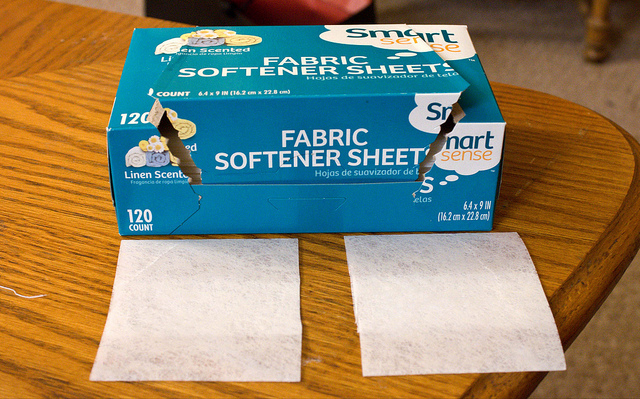


If you want to reap the benefits of a magic eraser, but can’t make it the store, a few dryer sheets might do the trick.
Yup, you heard correctly. Dryer sheets.
Although mostly used for laundry, dryer sheets actually have a very similar chemical composition to Magic Erasers. Plus, they’re naturally abrasive too, which makes them great for all types of stain and buildup removal.
So stack a few sheets together, add water, and scrub away.
Bleach
You probably use bleach for a bunch of different purposes at home already, from doing laundry to cleaning the tub. But did you know you can also use bleach to clean your pool?
It’s not as ideal as using vinegar since pure bleach is chemically harsher, but it’s a great alternative if used both correctly, and sparingly.
Take the same approach and use a 50/50 bleach and water solution for simple stain removal. When you’re finished, be sure to rinse off the cleaned surfaces thoroughly — bleach can wreak havoc on vinyl and other plastic materials when exposed to sunlight.
Homemade pool chemical tip: Bleach can also be used as an alternative to chlorine. For reference, a 1/2 gallon of bleach raises the chlorine of a 10,000-gallon pool by approximately 5ppm.
[Trying to run a pool without chlorine? Check out: How To Open A Pool Without Chlorine]
Muriatic acid
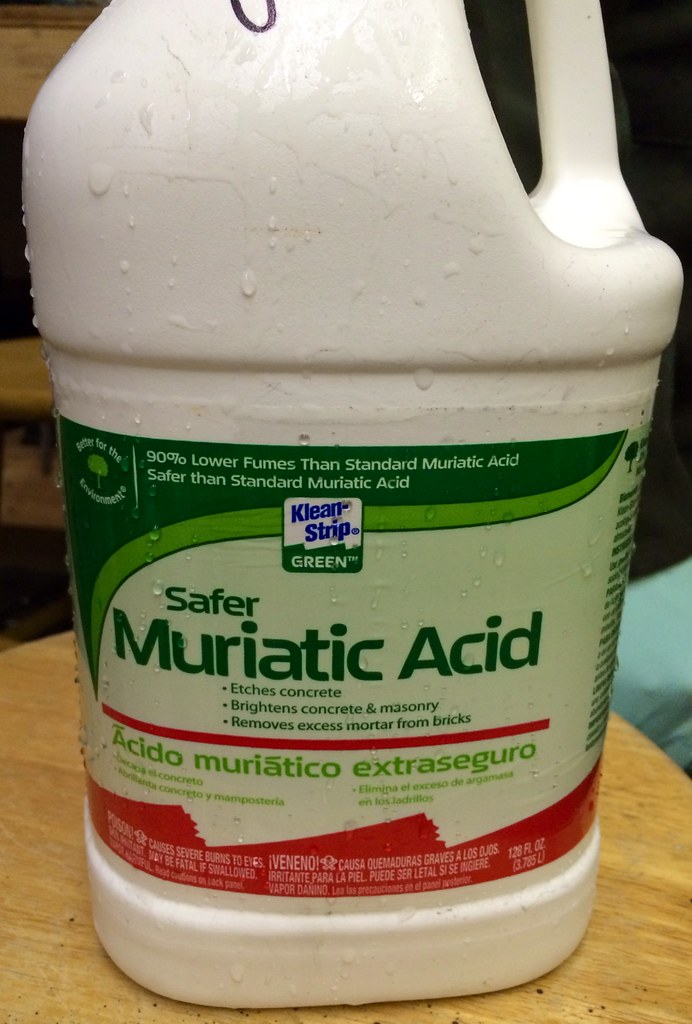


We put this chemical last for a few reasons:
- Muriatic acid is concentrated “stomach acid”, making it the strongest product on this list
- Outside of a stomach, muriatic acid is toxic to humans and can cause injury on contact or inhalation
(Use gloves, safety glasses, and a mask when handling) - Needs to be heavily diluted for cleaning use
- Not too many people have this sitting in their cabinet
Bottom line: muriatic acid is extremely powerful, but should be used with plenty of caution
For cleaning purposes, combine 9 parts water with 1 part muriatic acid. The solution can be used for just about anything, from cleaning metal surfaces to removing stubborn buildup and stains. But, be sure to use a sponge to apply it.
+Homemade pool chemical tip: You can also use muriatic acid to decrease your pool’s pH. Start by using a 1/4 gallon of acid per 10,000 gallons of pool water. Get as close to the water as possible, and slowly pour the acid into the pool. Avoid splashing or spilling acid. When finished, test your water’s pH to measure the decrease and adjust accordingly.


